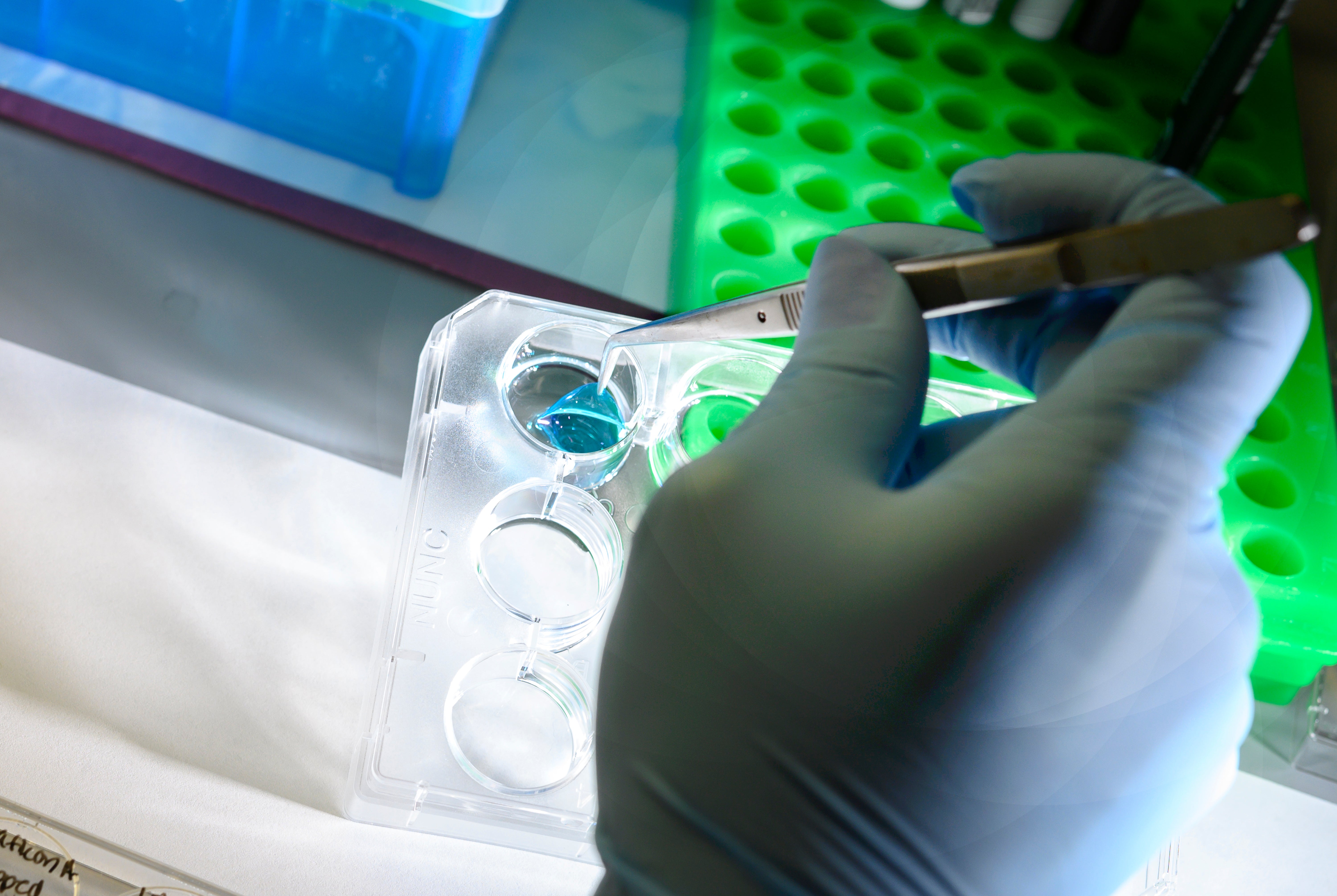
Each phase of life that returns to normal — whether it be a favorite restaurant reopening, students returning to class, or mask mandates being lifted — is a small victory in society's battle to overcome COVID-19.
The Department of Environmental Health and Safety, a part of the Office of Public Safety and Emergency Management, sees another development — in this case, a return to in-person training — as a cause for celebration.
Anyone who's been forced to sit through a Zoom or Teams call for the latest training session can attest: just being there is better. However, for those who are not ready to return to campus, online training will still be available.
The in-person training will resume in July, with separate sessions for bloodborne pathogens and chemical hygiene — both shelved in 2000 because of COVID.
"These are two of our most important trainings because of the broad and large target audiences," said Jay Frerotte, the Assistant Vice Chancellor of EH&S. "We as a department are excited about having in-person training because it allows us to directly connect with people, to share safety principles, to field questions and engage in conversations we wouldn't otherwise have during the online training.”
During the summer and beginning the week of July 5, training sessions will be held from 8:30 a.m. to 9:30 a.m. on Tuesdays in Room 169 at Crawford Hall. Depending on the week, the sessions will either focus on bloodborne pathogens or chemical hygiene. The latter will also include training in hazard communication.
For people who work with or in close proximity to bloodborne pathogens, the training is an annual requirement, made mandatory by both the University and the U.S. Occupational Safety and Health Administration. The list of jobs required to complete training ranges from doctors and biomedical researchers to plumbers and custodians.
The chemical hygiene training, which applies to anyone working with or handling laboratory chemicals, is mandatory once every three years. All training sessions will be hosted by EH&S staff.
Here is the schedule:
Bloodborne Pathogens Training
- Tuesday, July 5. Trainer will be Stefanie Coburn, Hazard Assessment Specialist.
- Tuesday, July 19. Trainer will be Heather Peffer, Laboratory Safety Specialist.
- Tuesday, August 2. Trainer will be Susan Slagel, Laboratory Safety Specialist.
- Tuesday, August 16. Trainer will be Melanie Pfeifer, Hazard Assessment Specialist.
Chemical Hygiene Training
- Tuesday, July 12. The trainer for this and the other sessions will be Sarmed Shareef, Industrial Hygiene Manager.
- Tuesday, July 26.
- Tuesday, August 9.
- Tuesday, August 23.
"In-person training is important, as it gives the faculty, staff, and students the opportunity for a face-to-face conversation with EH&S staff," Stefanie Coburn, a Hazard Assessment Specialist, said. "It helps to develop our relationship with the Pitt community and show that we are committed to making the University a safe workplace through various training opportunities."
Registration is not required. Classes will not be recorded or broadcast virtually. However, training may be completed by taking an online course. Anyone planning to attend an in-person session is asked to have their Pitt identification card.
For the Bloodborne Pathogens Training, participants can expect instruction on types of pathogens, how they're transmitted, signage, proper storage and containment, clean up and most importantly, how to protect yourself from exposure.
For the Chemical Hygiene Training, participants will be able to: identify the physical, health, and miscellaneous hazards of working in a laboratory; list at least three methods that can be used to reduce exposures to chemicals; explain when to use emergency showers, eyewashes, campus emergency number, and where to go for emergency care; clean up a small spill in the laboratory and properly dispose of chemicals through the University chemical waste disposal program; and describe the various ways to locate a Safety Data Sheet (SDS) and how to interpret proper chemical labeling.
Questions or concerns can be sent to safety@pitt.edu. Someone will get back to you within 48 hours.
